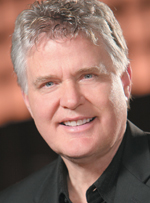Don’t worry about being ‘too political’ in the pulpit
“Pastor, you are too political,” said the irritated parishioner. But he did not stop there. “If you continue this, I’ll leave the church.” A further implication was obvious: “along with my tithe.” In that moment, the pastor is at a crossroad.
Some parishioners have heard sufficiently diluted preaching for so long that they don’t recognize truly biblical preaching. Therein lies the problem.
After all, isn’t the Bible quite clear? “Go into all the world—except the political realm,” according to some people’s Bibles? How has that type of preaching worked out for us? Is anyone’s community more righteous today than 20 or 40 years ago? Not one.
For 57 years, people have believed a cultural myth that “pastors cannot speak out about politics.” Such is the nature of the 1954 Johnson Amendment, which suddenly stripped way from American pulpits what they had enjoyed for more than 160 years—no governmental intrusion in the pulpit. Not only is this “pastors-can’t-talk-about-politics” myth unconstitutional—check out the First Amendment—but it flies in the face of biblical authority.
What about Daniel, Jeremiah, Queen Esther, Isaiah, Ezekiel, Amos, Obadiah and Nahum? They all failed to get the memo about not speaking out about politics. American pastors are not the first to have “speech restrictions” placed on them. Peter and John dealt with this at the Sanhedrin council, which attempted—unsuccessfully—to dictate what they could preach.
Was John Wesley “too political” for being a cheerleader to William Wilberforce in his crusade to end slavery in the British Empire? Were Orange Scott and Luther Lee too political when they campaigned against American slavery?
Was the congregation of the Wesleyan Chapel of Seneca Falls, N.Y., in 1848 too political when they hosted the first ever conference to obtain the right for women to vote? Was World War II era German pastor Dietrich Bonhoeffer too political in his biblical preaching? Why do we celebrate the life of Martin Luther King Jr.? Because he did not tone down his biblical preaching simply because it had implications for the body of politics.
We fully understand, “Render therefore to Caesar the things that are Caesar’s, and to God the things that are God’s” (Matt. 22:21). But what happens if Caesar begins demanding that which is God’s?
Can you see how the demarcation has slid? If I would have said 40 years ago that tearing up a baby in a womb was wrong, everyone would have said, “Of course.” Say it today, and you are too political. What has happened? Caesar demanded that which is God’s. Tragically, some pastors have retreated as the line was moved.
Robby George, the Catholic professor at Princeton, and Timothy George, dean of the Beeson Divinity School of Samford University—under the direction of Prison Fellowship founder Chuck Colson—said it best in writing the final words of the Manhattan Declaration: “We will fully and ungrudgingly render to Caesar what is Caesar’s. But under no circumstances will we render to Caesar what is God’s.”
On Sunday, Oct. 2, 539 pastors stood in their pulpits and defied the massive governmental intrusion into the pulpit (the Johnson Amendment) as part of the PulpitFreedom.com movement, bringing the four year total to more than 700 who have taken action. And what was the response? The pastors were greeted—most to their surprise—with standing ovations.
Congregations are hungry for true biblical preaching—and that includes preaching that has clear implications for the political arena. Ultimately it is not really political, but it is biblical. Gratefully, many people are coming to realize this truth.
Jim Garlow is the pastor of Skyline Wesleyan Church in San Diego, and also serves as chairman of Renewing American Leadership (ReAL) in Washington, DC. He is the author of 12 books, including his latest, Miracles Are For Real. Jim is heard on the one-minute commentary called “The Garlow Perspective.” For information on Pulpit Freedom Sunday, visit www.PulpitFreedom.com.
Get Spirit-filled content delivered right to your inbox! Click here to subscribe to our newsletter.
Dr. Mark Rutland's
National Institute of Christian Leadership (NICL)
The NICL is one of the top leadership training programs in the U.S. taught by Dr. Mark Rutland. If you're the type of leader that likes to have total control over every aspect of your ministry and your future success, the NICL is right for you!
FREE NICL MINI-COURSE - Enroll for 3-hours of training from Dr. Rutland's full leadership course. Experience the NICL and decide if this training is right for you and your team.
Do you feel stuck? Do you feel like you’re not growing? Do you need help from an expert in leadership? There is no other leadership training like the NICL. Gain the leadership skills and confidence you need to lead your church, business or ministry. Get ready to accomplish all of your God-given dreams. CLICK HERE for NICL training dates and details.The NICL Online is an option for any leader with time or schedule constraints. It's also for leaders who want to expedite their training to receive advanced standing for Master Level credit hours. Work through Dr. Rutland's full training from the comfort of your home or ministry at your pace. Learn more about NICL Online. Learn more about NICL Online.


